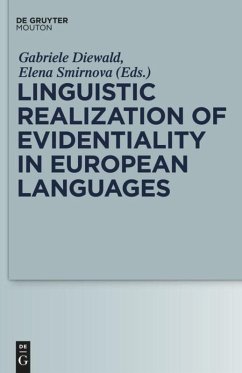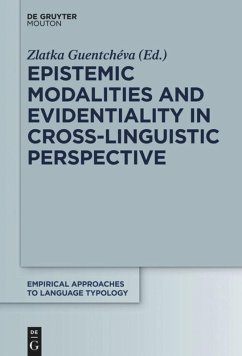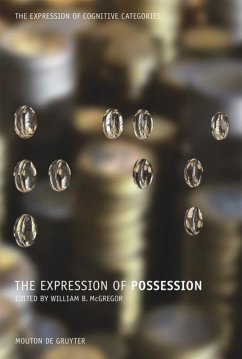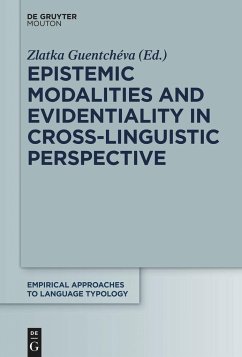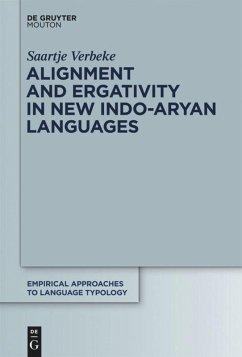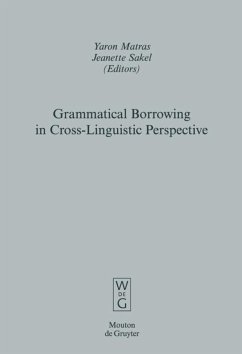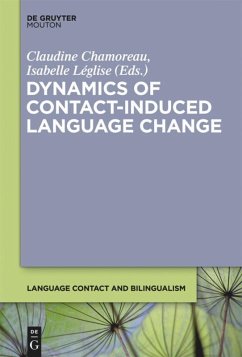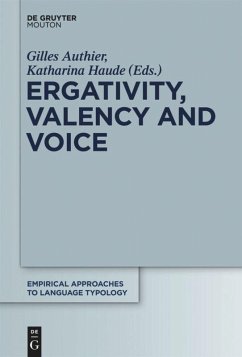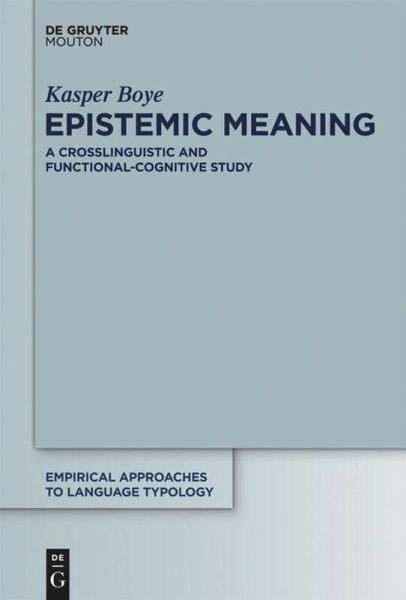
Epistemic Meaning
A Crosslinguistic and Functional-Cognitive Study

PAYBACK Punkte
60 °P sammeln!
This book is intended to contribute to the clarification of the linguistic research area covered by the terms modal, evidential and epistemic. It sets out to demonstrate that on cross-linguistic grounds a hitherto overlooked epistemic meaning domain must be given due recognition in linguistic theory, on a par with domains such as time and number. The relevant domain is coherent, but at the same time complex in that it consists of two subdomains: one which comprises degree-of-certainty meanings, and one which comprises information-source meanings.The book offers three arguments for giving recog...
This book is intended to contribute to the clarification of the linguistic research area covered by the terms modal, evidential and epistemic. It sets out to demonstrate that on cross-linguistic grounds a hitherto overlooked epistemic meaning domain must be given due recognition in linguistic theory, on a par with domains such as time and number. The relevant domain is coherent, but at the same time complex in that it consists of two subdomains: one which comprises degree-of-certainty meanings, and one which comprises information-source meanings.
The book offers three arguments for giving recognition to such a meaning domain. The first argument concerns the clustering of linguistic expressions with epistemic meaning into morphosyntactically delimited systems of elements. The second argument has to do with the variation pertaining to the coding of epistemic meanings, as highlighted in a semantic map of epistemic expressions. The third argument turns upon the scope properties of epistemic meanings and the morphosyntactic reflections of these properties.
Finally, the book proposes a unified cognitive analysis of epistemic meaning in terms of which it attempts to account for the properties of the epistemic meaning domain as well as of individual epistemic meanings.
The book offers three arguments for giving recognition to such a meaning domain. The first argument concerns the clustering of linguistic expressions with epistemic meaning into morphosyntactically delimited systems of elements. The second argument has to do with the variation pertaining to the coding of epistemic meanings, as highlighted in a semantic map of epistemic expressions. The third argument turns upon the scope properties of epistemic meanings and the morphosyntactic reflections of these properties.
Finally, the book proposes a unified cognitive analysis of epistemic meaning in terms of which it attempts to account for the properties of the epistemic meaning domain as well as of individual epistemic meanings.




